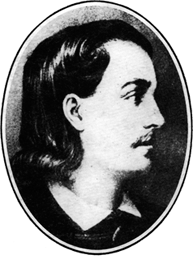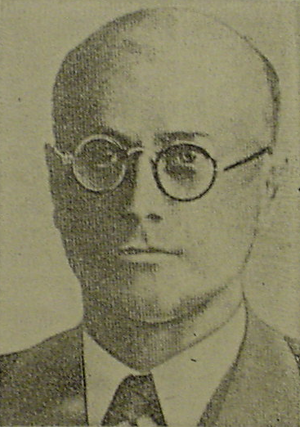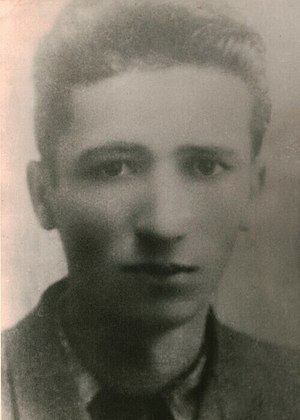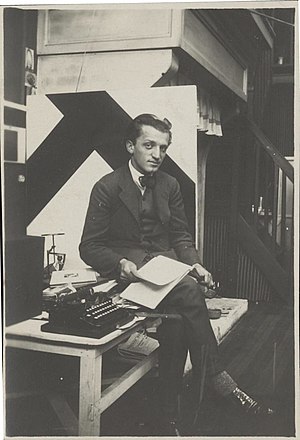Discover Your Roots
SIGN UPDiscover Your Roots
SIGN UPBranko is a male name of Slavic origin, meaning "Protection" and "Glory." This name is commonly found in the former Yugoslavia and is related to names like Branimir and Branislav. The Cyrillic script for Branko is Бранко, and its Serbo-Croatian pronunciation is [brâːŋko]. Notable individuals bearing this name include Branko Babić, a Serbian football manager, Branko Horvat, a Croatian economist and politician, and Branko Milanović, a Serbian-American economist. The name also has cultural references, such as Branko's Bridge and Branko, the artist's name of Portuguese musician João Barbosa. Whether you're drawn to the meaning of protection, seeking glory, or simply appreciate Slavic names, Branko carries a rich historical and cultural significance.

Aleksije "Branko" Radičević, born on 28 March 1824, was a prominent Serbian poet of the Romanticism era. His baptismal name was Aleksije before he adopted the name Branko. After completing his high school education in Sremski Karlovci, he pursued further studies in Vienna. In 1847, he released his first book of poetry, marking a new phase in Serbian poetry. Known for writing in the simple language of the common folk, Radičević's works aimed to recreate the rhythm of folk songs, aligning with Vuk Karadžić's language reform. Some of his notable works include "The Parting of Schoolfriends" and "A Journey." Despite his untimely death from tuberculosis in Vienna in 1853, his influence on Serbian literature endured. He influenced future generations of Serbian poets and was recognized as one of the 100 most prominent Serbs. His legacy includes the founding of the Branko's Award and the naming of squares and schools in his honor. Radičević's impactful contribution to Serbian literature continues to be celebrated and recognized.

Branko Vukelić (1904 – January 1945) was a Yugoslav spy who worked for Richard Sorge's spy ring in Japan. Born in Osijek, Vukelić's father was a military officer in the Austrian army in Lika, and his mother was born to Jewish parents from Osijek. He pursued his education in Zagreb and later moved to Paris due to his ties to Communism. In 1933, Vukelić was sent to Japan as a Soviet counter-intelligence agent and worked alongside Richard Sorge in a Soviet-backed spy network known as the Sorge ring. Despite facing personal challenges, including a controversial marriage, he continued to gather information for the network. However, the spy ring was eventually broken in 1941, leading to Vukelić's imprisonment and subsequent death in 1945. Posthumously, Vukelić was recognized for his activities and awarded the Order of the Patriotic War (First Degree) by decree of Praesidium of the Supreme Soviet in 1964. Today, his son Hiroshi Yamasaki Vukelić resides in Japan and Belgrade and is involved in Japanese-Serbian relations.

Branko Bauer (18 February 1921 – 11 April 2002) was a prominent Croatian film director celebrated for his contributions to classical narrative cinema in Croatian and Yugoslav cinema during the 1950s. His interest in cinema was sparked during his school years, and he began his career as a documentary filmmaker in the Zagreb-based Jadran Film studio. Bauer's feature debut, "The Blue Seagull" (Sinji galeb) in 1953, showcased his distinctive visual style and natural acting, setting him apart from other Yugoslav productions at the time.One of Bauer's most acclaimed works is the 1956 war thriller "Don't Look Back, My Son" (Ne okreći se sine), which portrays the story of a World War II resistance fighter trying to rescue his son from an Ustaša boarding school. His film "Face to Face" (Licem u lice) in 1963 is considered the first Yugoslav political film. Despite his early success, Bauer struggled to adapt to the modernist shift in Yugoslav cinema during the 1960s, leading to a decline in his career.Bauer's films often depicted the decent, old, middle-class families, earning both admiration and criticism for their "old-fashioned" and "bourgeois" values. His works, although not challenging the regime, were praised for their portrayal of characters making moral choices driven by honor rather than ideology.Bauer's legacy endures through

Branko Kadija, Jordan Misja, and Perlat Rexhepi were Albanian students and members of the Communist Party of Albania during the country's struggle for liberation from the fascist Italian protectorate. In 1942, the trio heroically resisted Albanian fascist forces and police for several hours at a house in Shkodër, engaging in acts of sabotage and antifascist propaganda. Despite being surrounded by at least 600 people, they managed to fight back and were ultimately proclaimed People's Heroes of Albania for their bravery. Their legacy lives on through the naming of schools, streets, and buildings in their honor, such as the "Jordan Misja Artistic Lyceum" and "Jordan Misja High School." Additionally, the "Perlat Rexhepi" partisan battalion operated in the Gjakovë highlands and contributed to the conference of Albanian and Yugoslav communists in 1943. The heroic actions of these individuals continue to inspire and are an integral part of the Albanian national liberation struggle.

Branko Ve Poljanski, also known as Branislav Micić, was a notable Serb poet and painter who actively contributed to the Serbo-Croat avant-garde movement. Born on October 22, 1898, in Sošice and passing away on January 14, 1947, in Recloses, France, he co-founded the avant-garde movement Zenitism and its magazine Zenit. Hailing from the Austro-Hungarian Empire's region that is now part of Croatia, Branko pursued a career as a teacher in Zagreb and later founded the Svetokret journal in Ljubljana. He then ventured to Vienna and Berlin, where he associated with Der Sturm, the Avant-garde magazine by Herwarth Walden. His artistic influence extended to his brother, Ljubomir Micić, who also became a prominent avant-garde artist. Branko's personal life saw him marrying a French woman and becoming a father to four children. Despite ceasing to publish after 1940, his impact on the avant-garde movement persisted even after his passing.
All images displayed on this page are sourced from Wikipedia or Wikimedia Commons.We use these images under their respective Creative Commons or public domain licenses. Wherever applicable, author attributions and license information are provided. If you believe an image is used incorrectly or outside its license terms, please contact us so that we can review and correct the issue.